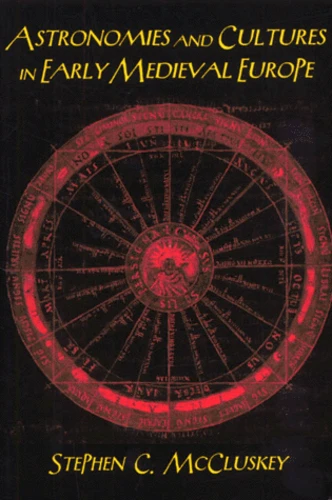Astronomies And Cultures In Early Medieval Europe
Par :Formats :
- Paiement en ligne :
- Livraison à domicile ou en point Mondial Relay indisponible
- Retrait Click and Collect en magasin gratuit
- Nombre de pages235
- PrésentationBroché
- Poids0.355 kg
- Dimensions15,4 cm × 22,8 cm × 1,6 cm
- ISBN0-521-77852-2
- EAN9780521778527
- Date de parution03/02/2001
- ÉditeurCambridge University Press
Résumé
"In this significant study, McCluskey describes the interaction of four prevalent early medieval astronomies - divisions of the year, the dating of Easter, monastic timekeeping, and traditional geometrical astronomy. With impressive erudition, he shows how early medieval scholars preserved astronomical learning that might otherwise have disappeared and thereby prepared the way for progress that would follow." Edward Grant, Indiana University
"The account of a millennium of astronomy by the historian Stephen C. McCluskey covers a wide sweep, from Jerome and Augustine to the recovery of Ptolemaic astronomy in the thirteenth century." Times Literary Supplement
"McCluskey's book is an essential guide." American Scientist
Historians have long recognized that the rebirth of science in twelfth-century Europe flowed from a search for ancient scientific texts. This search, however, presupposes knowledge and interest; we only seek what we know to be valuable. The emergence of scholarly interest after centuries of apparent stagnation seems paradoxical. This book resolves that seeming contradiction by describing four active traditions of early medieval astronomy: one divided the year by observing the Sun; another computed the date of Easter Full Moon; the third determined the time for monastic prayers by watching the course of the stars; and the classical tradition of geometrical astronomy provided a framework for the cosmos.
"In this significant study, McCluskey describes the interaction of four prevalent early medieval astronomies - divisions of the year, the dating of Easter, monastic timekeeping, and traditional geometrical astronomy. With impressive erudition, he shows how early medieval scholars preserved astronomical learning that might otherwise have disappeared and thereby prepared the way for progress that would follow." Edward Grant, Indiana University
"The account of a millennium of astronomy by the historian Stephen C. McCluskey covers a wide sweep, from Jerome and Augustine to the recovery of Ptolemaic astronomy in the thirteenth century." Times Literary Supplement
"McCluskey's book is an essential guide." American Scientist
Historians have long recognized that the rebirth of science in twelfth-century Europe flowed from a search for ancient scientific texts. This search, however, presupposes knowledge and interest; we only seek what we know to be valuable. The emergence of scholarly interest after centuries of apparent stagnation seems paradoxical. This book resolves that seeming contradiction by describing four active traditions of early medieval astronomy: one divided the year by observing the Sun; another computed the date of Easter Full Moon; the third determined the time for monastic prayers by watching the course of the stars; and the classical tradition of geometrical astronomy provided a framework for the cosmos.

